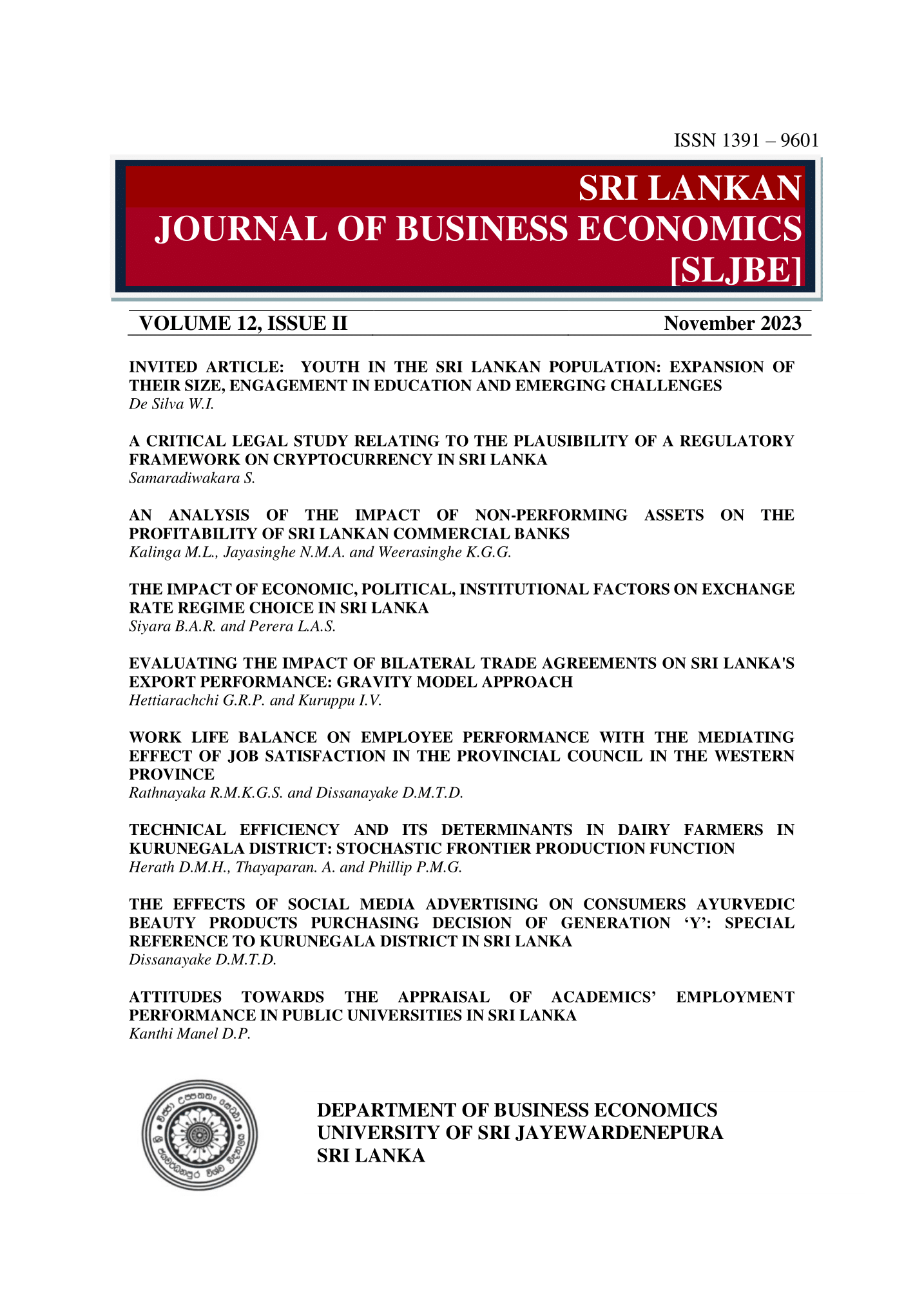AN ANALYSIS OF THE IMPACT OF NON-PERFORMING ASSETS ON THE PROFITABILITY OF SRI LANKAN COMMERCIAL BANKS
DOI:
https://doi.org/10.31357/sljbe.v12.6793Abstract
Licensed commercial banks are considered entities that participate in financial intermediation, which bears risks in carrying out their activities. This study focused on analyzing how non-performing loans and advances, collectively non-performing assets, impact the profitability of commercial banks. The study focused on the Sri Lankan context of the phenomenon, where the commercial banking sector has received less attention than in other countries. The Central Bank of Sri Lanka's economic data library is the primary source of secondary data for this study. The target population of the study consisted of licensed financial institutions in the Sri Lankan banking sector, from which 24 licensed commercial banks were readily selected. Time-series data from 2001 to 2020 on the variables were collected to guarantee that reforms in the banking sector continued throughout the time. E-Views version 10 was used to conduct the statistical analysis of the data. The regression analysis results show that non-performing assets have a significant impact on the net profit of commercial banks in Sri Lanka and that the relationship between the variables under consideration is negative, leading to the conclusion that non-performing assets harm the net profit of commercial banks in Sri Lanka. The researcher encourages future studies to focus on a diverse sample to acquire a thorough perspective of Sri Lanka's banking sector. The study provides valuable insights to Sri Lankan commercial banks in managing credit risk associated with their operations.

